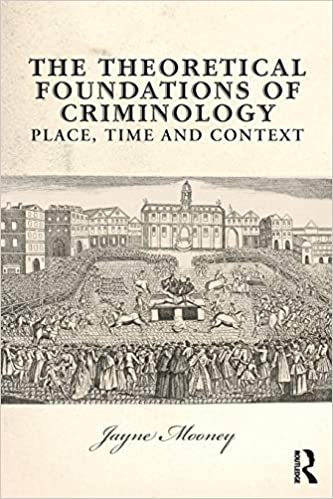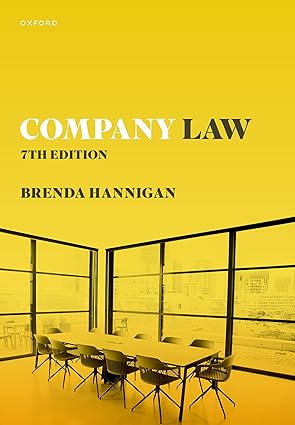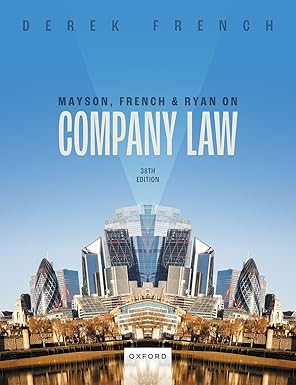To confront the challenges criminologists face today and to satisfactorily critique the theories on which criminology is founded, we need to learn from the past. To do this we must give context to both theorist and theory. Written from a critical perspective, this book brings criminological theory to life. It presents the core theories of criminology as historical and cultural products and theorists as producers of culture located in particular places, writing in specific historical periods and situated in precise intellectual networks and philosophical controversies.
This book illustrates that theory does not arise ‘out of the blue’ and highlights the importance of understanding how and why ideas emerge at certain points in time, why they gained currency and the influence that they have had. It follows the trajectory of criminology from pre-Enlightenment society through to the present day and the proliferation of criminological thinking. It explores:
- Setting the Stage for the Emergence of Criminology
- Classicist Criminology: The Search for Justice, Equality and the Rational ‘Man’
- The Positivist Revolution, Physiognomy, Phrenology and the Science of ‘Othering’
- Chicago School of Sociology: An Explosion of Ideas
- Developing a Sociological Criminology: Durkheim, Du Bois, Merton and Tannenbaum
- Feminism: Redressing the Gender Imbalance
- Confronting the Establishment: The Emergence of Critical Criminology
- From Theoretical Innovations to Political Engagement
The Theoretical Foundations of Criminology provides an invaluable contribution to the growing conversation about criminology’s ‘origin story’ and the level that this is grounded in the idiosyncrasies of the North Atlantic world and its historical development. This book will be invaluable reading to students and academics engaged in studies of criminology and criminal justice.
چکیده فارسی
برای رویارویی با چالشهایی که امروزه جرمشناسان با آن روبرو هستند و نقد رضایتبخش نظریههایی که جرمشناسی بر آنها بنا شده است، باید از گذشته درس بگیریم. برای انجام این کار، باید زمینه را هم به نظریهپرداز و هم به نظریه بدهیم. این کتاب که از منظر انتقادی نوشته شده است، نظریه جرم شناسی را زنده می کند. نظریههای اصلی جرمشناسی را بهعنوان محصولات تاریخی و فرهنگی و نظریهپردازان را بهعنوان تولیدکنندگان فرهنگ در مکانهای خاص، که در دورههای تاریخی خاص مینویسند و در شبکههای فکری دقیق و مجادلات فلسفی قرار دارند، ارائه میکند.
این کتاب نشان میدهد که تئوری «بیطرفانه» به وجود نمیآید و اهمیت درک اینکه چگونه و چرا ایدهها در مقاطع خاصی از زمان پدیدار میشوند، چرا آنها ارزآوری پیدا کردهاند و تأثیری که داشتهاند را برجسته میکند. این خط سیر جرم شناسی از جامعه پیش از روشنگری تا امروز و گسترش تفکر جرم شناسی را دنبال می کند. کاوش می کند:
- تنظیم مرحله ظهور جرم شناسی
- جرمشناسی کلاسیک: جستجوی عدالت، برابری و «انسان» منطقی
- انقلاب پوزیتیویستی، فیزیوگنومی، فرنولوژی و علم "دیگری"
- مدرسه جامعه شناسی شیکاگو: انفجار ایده ها
- توسعه جرم شناسی جامعه شناختی: دورکیم، دوبوآس، مرتون و تاننباوم
- فمینیسم: اصلاح عدم تعادل جنسیتی
- مقابله با استقرار: ظهور جرم شناسی انتقادی
- از نوآوری های نظری تا مشارکت سیاسی
مبانی نظری جرمشناسی سهم ارزشمندی در گفتگوی فزاینده درباره «داستان منشأ» جرمشناسی و سطحی است که این موضوع بر اساس ویژگیهای خاص جهان اقیانوس اطلس شمالی و توسعه تاریخی آن است. این کتاب خواندنی ارزشمند برای دانشجویان و دانشگاهیان درگیر در مطالعات جرم شناسی و عدالت کیفری خواهد بود.
ادامه ...
بستن ...
ISBN-13: 978-0131960107
ISBN-10: 0131960105
ادامه ...
بستن ...










